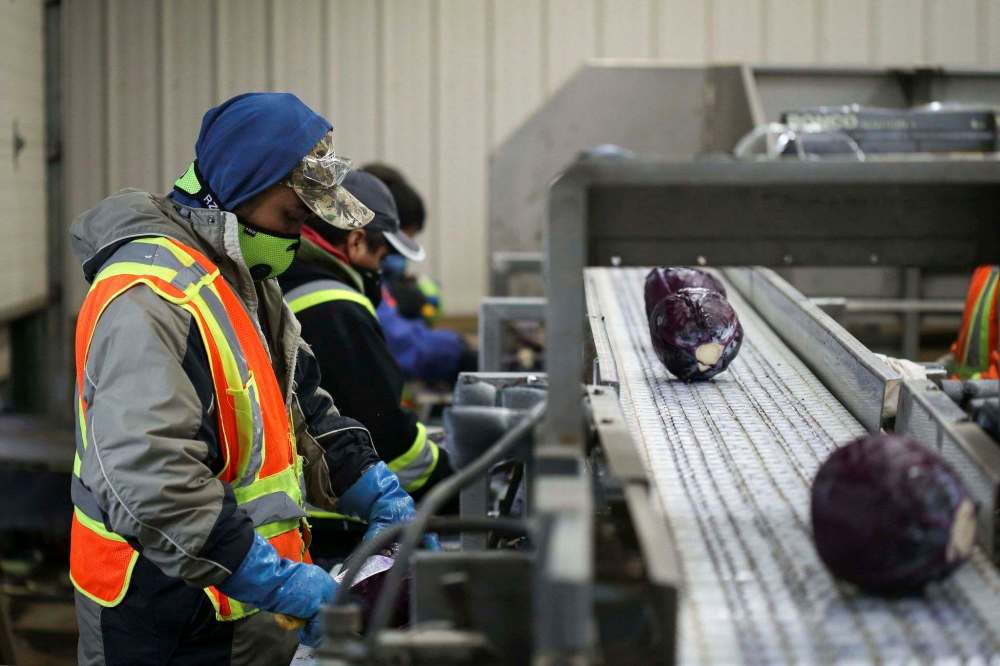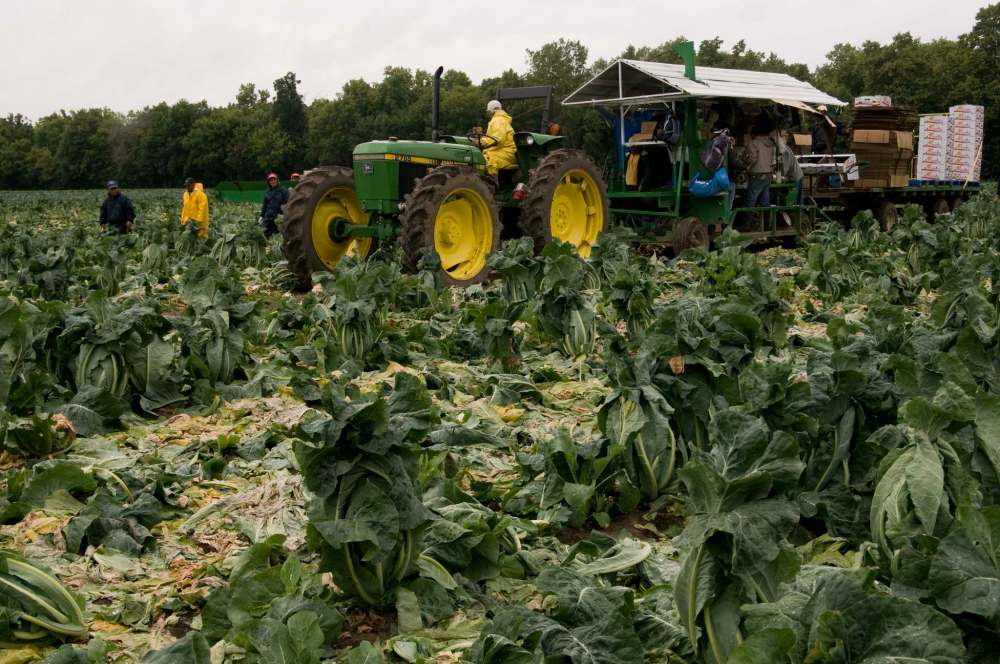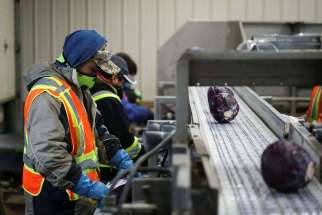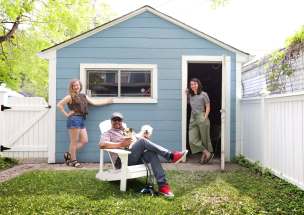Advocates seek increased oversight to protect health of foreign workers
Read this article for free:
or
Already have an account? Log in here »
To continue reading, please subscribe:
Monthly Digital Subscription
$19 $0 for the first 4 weeks*
- Enjoy unlimited reading on winnipegfreepress.com
- Read the E-Edition, our digital replica newspaper
- Access News Break, our award-winning app
- Play interactive puzzles
*No charge for 4 weeks then billed as $19 every four weeks (new subscribers and qualified returning subscribers only). Cancel anytime.
Read unlimited articles for free today:
or
Already have an account? Log in here »
Hey there, time traveller!
This article was published 03/06/2020 (1419 days ago), so information in it may no longer be current.
The government needs to look out for the health and safety of farm labourers coming to Manitoba to do the hardest work for the lowest pay, advocates say in the wake of four temporary foreign workers testing positive for COVID-19.
“Normally, our volunteers might be able to meet up with them, but because of the isolation around quarantine, they’re even more isolated at a more critical time,” said Karen Hamilton, co-chairwoman of the Migrant Worker Solidarity Network in Manitoba.
Numbers
• In 2018, 579 migrant workers came to Manitoba to work in agriculture, employed at 67 farms.
• In Canada, temporary foreign workers account for 20 per cent of the agriculture workforce.
• They came from nearly 100 countries, with the majority from Mexico (51 per cent); Guatemala (20 per cent) and Jamaica (18 per cent).
— source: Statistics Canada
“That’s why the government really needs to step in,” said Hamilton, who expects the province will receive 500 seasonal farm workers from abroad this year.
This past week, four temporary foreign workers tested positive for COVID-19 in the Southern Health region, chief provincial public health officer Dr. Brent Roussin announced Wednesday. He’s refused to identify the type of business, citing privacy concerns and no significant risk to the public.
The workers are among 18 recent arrivals at the same establishment who have been self-isolating. They’ve all been tested, as well as six local workers who tested negative, officials said.
The Migrant Worker Solidarity Network is urging provincial inspectors visit farms where temporary foreign workers are employed to ensure public health directives and social-distancing measures are followed.
“They need to be in a healthy and safe workplace, and we should be doing everything we can to make sure,” said Hamilton.
The faith and community volunteer group is asking for onsite, in-person inspections of all Manitoba farms employing migrant workers, to make sure there are clean and accessible bathroom and handwashing facilities, routine cleaning and disinfecting of commonly-touched surfaces and objects throughout the workday, physical distancing of two metres between workers at all times, and training on how to work safely and prevent the spread of COVID-19 — in their native language.

Some understand very little English, said Hamilton. “Workers do have to understand the health and safety hazards.”
They need to know about signs and symptoms of COVID-19, testing sites, what to do if they are sick, and their employer’s obligations, she said.
The workers — who get the same paycheque deductions as Manitoba residents and few of the benefits — deserve it, said Hamilton. “How are they being supported to understand the information and training?”
A statement from the province late Thursday said: “Employers are required to conduct a risk assessment and implement reasonable control measures to reduce risk to workers,” as it relates to COVID-19.

In the past, Manitoba’s employment standards branch has investigated workplaces with especially vulnerable workers, according to a 2014 report by University of Manitoba labour studies and history Prof. Julie Guard.
The branch’s special investigations unit at one time inspected 25 Manitoba farms that employ 70 per cent of the migrant workers under the Seasonal Agricultural Worker Program. It found eight with significant violations and six with minor problems, Guard wrote.
Follow-ups found most problems resolved, Guard’s report published by the Canadian Centre for Policy Alternatives Manitoba office said.
It showed the inspections were necessary for identifying violations, educating employers and making sure workers are protected, advocates said.
carol.sanders@freepress.mb.ca

Carol Sanders
Legislature reporter
After 20 years of reporting on the growing diversity of people calling Manitoba home, Carol moved to the legislature bureau in early 2020.





